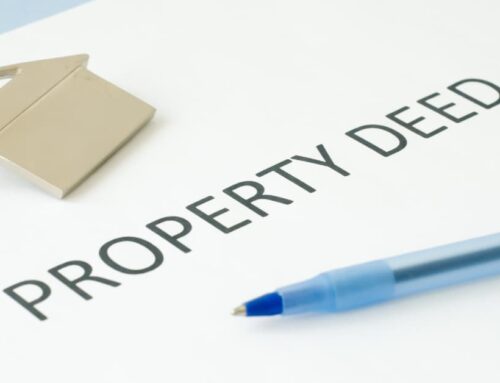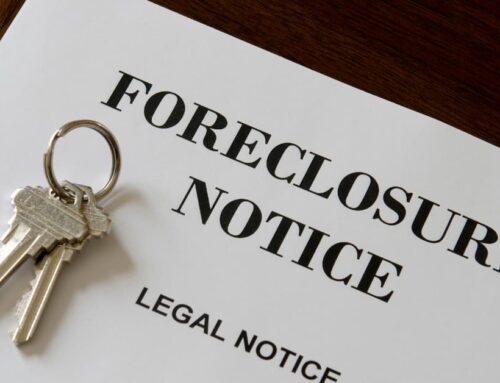Once a foreclosure auction is complete and the property transfers to a new owner, you lose your legal right to stop the sale. Until that moment, Texas law provides several options to delay or prevent foreclosure entirely, and understanding effective strategies to stop foreclosure in Texas can make all the difference in protecting your home..
If you’re behind on mortgage payments or have received a foreclosure notice, you still have time to act. Many homeowners assume the process is over once it begins, but the reality is different. There are multiple points in the foreclosure timeline where you can intervene to protect your home.
This guide explains when foreclosure becomes permanent, what the critical deadlines are in Texas, and what legal and financial strategies you can use to stop the process. A qualified real estate attorney can help you understand your rights and represent you in negotiations or court.
⚠️ Critical for Texas Homeowners
Unlike many states, Texas does not offer a redemption period after the foreclosure auction. Once your home sells, you cannot reclaim it by paying off what you owed. This makes acting before the sale date absolutely essential.
When Does Foreclosure Become Final?
The point of no return in foreclosure is the auction. Once your home sells at a foreclosure sale and ownership legally transfers to another party, you can no longer stop the process through court orders, negotiations, or payment arrangements.
📋 The 120-Day Federal Protection
According to the Consumer Financial Protection Bureau (CFPB), mortgage servicers cannot begin foreclosure proceedings until your loan is more than 120 days delinquent. This federal rule gives you at least four months to work with your lender before any legal action starts.
In Texas, most lenders use non-judicial foreclosure, which means they don’t need to file a lawsuit to take your home. Instead, they follow specific procedures outlined in Texas Property Code Section 51.002. The Texas State Law Library notes that homeowners must receive a Notice of Default at least 20 days before a Notice of Sale is issued.
The Texas Foreclosure Timeline: Key Deadlines
Understanding the foreclosure timeline in Texas helps you identify when to take action. Here’s what typically happens at each stage:
Day 1-30: Missed Payment
Your lender will reach out with reminders or warnings. This is your first opportunity to contact them about assistance options.
Day 30-90: Default Status
After 30 days without payment, your loan is officially in default. Your lender may send a breach letter outlining foreclosure alternatives.
Day 120+: Foreclosure Can Begin
Federal regulations prevent lenders from filing the first foreclosure notice until your mortgage is over 120 days delinquent. Once this threshold passes, you receive a Notice of Default with 20 days to take corrective action.
21+ Days Before Sale: Notice of Sale
If you don’t resolve the default, the lender files a Notice of Sale with the county clerk and posts it at the courthouse. Texas law requires this notice at least 21 days before the auction.
First Tuesday of the Month: Auction
Foreclosure sales in Texas occur on the first Tuesday of each month between 10:00 a.m. and 4:00 p.m. at the county courthouse. The home goes to the highest bidder.
Legal Strategies to Stop Foreclosure Before the Auction
Until the gavel falls at auction, you have options. Below is a comparison of the most effective ways to stop foreclosure in Texas:
| Option | Stops Foreclosure? | Time to Process | Keep Your Home? | Best For |
|---|---|---|---|---|
| Reinstatement | Yes, immediately | Depends on funds | Yes | Those with access to lump sum |
| Loan Modification | Yes, if approved | 30-90 days | Yes | Temporary hardship, stable income |
| Forbearance | Temporarily | 1-2 weeks | Yes | Short-term financial setback |
| Chapter 13 Bankruptcy | Yes, automatic stay | Immediate | Yes (with plan) | Multiple debts, need 3-5 year plan |
| Chapter 7 Bankruptcy | Temporarily | Immediate | Maybe | Discharge other debts to afford mortgage |
| Legal Challenge | Depends on case | Varies | Possible | Lender violated procedures or rights |
Reinstatement
Stops Foreclosure?
Yes, immediately
Time to Process
Depends on funds
Keep Home?
Yes
Best For
Access to lump sum
Loan Modification
Stops Foreclosure?
Yes, if approved
Time to Process
30-90 days
Keep Home?
Yes
Best For
Temporary hardship
Forbearance
Stops Foreclosure?
Temporarily
Time to Process
1-2 weeks
Keep Home?
Yes
Best For
Short-term setback
Chapter 13 Bankruptcy
Stops Foreclosure?
Yes, automatic stay
Time to Process
Immediate
Keep Home?
Yes (with plan)
Best For
Multiple debts
Chapter 7 Bankruptcy
Stops Foreclosure?
Temporarily
Time to Process
Immediate
Keep Home?
Maybe
Best For
Discharge other debts
Legal Challenge
Stops Foreclosure?
Depends on case
Time to Process
Varies
Keep Home?
Possible
Best For
Lender violations
Reinstate Your Mortgage
Texas law allows homeowners to bring their loan current by paying the total amount of missed payments, late fees, and legal costs. According to Section 51.002 of the Texas Property Code, you can reinstate within 20 days of receiving the Notice of Default. Check your loan documents, as they may provide additional time.
Request a Loan Modification
A loan modification changes the terms of your mortgage to make payments more affordable. This could include lowering your interest rate, extending the loan term, or adding missed payments to the balance. Contact your servicer early, as modifications take time to process. You can also explore loan modification services through a qualified attorney.
Apply for Forbearance
Forbearance is a temporary pause or reduction in your monthly payments due to financial hardship. The lender agrees not to foreclose during this period, but you will eventually need to repay the missed amount.
File for Chapter 13 Bankruptcy
Filing Chapter 13 triggers an automatic stay, which immediately halts all foreclosure activity. According to the U.S. Courts, Chapter 13 allows you to repay missed mortgage payments over three to five years through a court-approved plan while keeping your home.
File for Chapter 7 Bankruptcy
While Chapter 7 does not stop foreclosure permanently, it can delay the process and discharge other debts. This may free up income to help you afford your mortgage going forward.
Challenge the Foreclosure Legally
If your lender violated your rights or failed to follow proper procedures, you may be able to file a lawsuit to stop or delay the sale. Common challenges include lack of standing, failure to provide required notices, or RESPA violations. An attorney can help you fight foreclosure and win if procedural errors occurred.
What to Do If the Sale Date Is Days Away
When the auction is imminent, you still have options, but you must act immediately.
File Chapter 13 Bankruptcy: Filing for Chapter 13 triggers an automatic stay that stops all creditor collection activities, including foreclosure. This protection takes effect the moment you file, even if the auction is scheduled for the same day. Chapter 13 allows you to create a repayment plan to catch up on your mortgage over time.
Request a Temporary Restraining Order (TRO): If your lender violated state or federal law during the foreclosure process, you may be able to obtain a TRO from a court. This legal order pauses the sale while a judge reviews your case. Valid grounds include failure to serve proper notices, failure to follow the foreclosure timeline, or violations of the Real Estate Settlement Procedures Act (RESPA).
Contact Your Lender Directly: Some lenders will postpone an auction if you can demonstrate progress toward a loan modification or repayment plan. While this is not guaranteed, it costs nothing to ask.
In these situations, consulting a foreclosure attorney immediately is critical. Even one day of delay can mean the difference between keeping your home and losing it permanently.
How to Prevent Foreclosure Before It Starts
The simplest way to stop foreclosure is to prevent it from happening in the first place. If you’re struggling to make payments, these steps can help you stay ahead of the process:
- Contact your lender at the first sign of financial difficulty. The earlier you reach out, the more options you’ll have.
- Apply for loan modification or forbearance as soon as hardship occurs. Don’t wait for a missed payment to start the conversation.
- Work with a HUD-approved housing counselor. The U.S. Department of Housing and Urban Development offers free counseling services to help you understand your options and negotiate with your lender.
- Keep detailed records of all communication with your servicer, including emails, letters, and notes from phone calls. These records can support your case if disputes arise.
- Watch for foreclosure scams. Be cautious of anyone who promises results in exchange for upfront fees or asks you to sign over your deed.
📌 Quick Action Checklist Based on Your Situation
- 1-2 payments behind: Contact your lender immediately to discuss forbearance or repayment plans.
- 3+ payments behind with stable income: Apply for a loan modification before foreclosure begins.
- Received Notice of Default: Consult a real estate attorney to review your options.
- Auction date scheduled: Consider Chapter 13 bankruptcy or seek a TRO if lender errors occurred.
Take Action Before Your Options Disappear
Foreclosure is a process, not a single event. That means you have time to act if you take the right steps early enough. Whether you apply for a loan modification, file for bankruptcy, or negotiate a repayment plan, your chances of saving your home increase the sooner you begin.
Don’t wait for an auction notice to arrive. Explore your actions to stop the foreclosure process and understand what’s available to you. Review foreclosure defense strategies that may apply to your situation. With timely action and the right legal support, you can protect your home and work toward financial stability.
Facing Foreclosure?
Are you behind on mortgage payments or worried about losing your home? Get experienced legal guidance to explore your options and protect your property.
Frequently Asked Questions About Stopping Foreclosure
Can you stop foreclosure once it starts?
Yes. Even after foreclosure proceedings begin, you may have time to resolve the default. Lenders are often open to negotiation, and legal protections allow you to pursue loan modifications, forbearance, or bankruptcy until the auction takes place.
How long does a homeowner have before foreclosure in Texas?
Federal regulations require lenders to wait at least 120 days after your first missed payment before filing the first foreclosure notice. After that, Texas law requires at least 41 more days of notices before an auction can occur. The total process typically takes four to six months.
Will filing bankruptcy stop a foreclosure sale?
Filing for Chapter 13 bankruptcy triggers an automatic stay that immediately halts foreclosure, even if the auction is scheduled for the same day. Chapter 7 bankruptcy can also pause the process, though it does not provide a long-term path to keeping your home.
Can I stop foreclosure by paying what I owe?
In most cases, yes. Texas law gives homeowners the right to reinstate their mortgage by paying all past-due amounts, late fees, and legal costs. You typically have 20 days after receiving a Notice of Default to do this, though your loan documents may allow additional time.
What happens after the foreclosure auction in Texas?
Once your home sells at auction and ownership transfers, you lose your legal right to the property. Texas does not provide a redemption period after the sale. The new owner can begin eviction proceedings, and you will receive a notice to vacate.
Are there special foreclosure protections for military servicemembers in Texas?
Yes. The Servicemembers Civil Relief Act (SCRA) provides legal protections to active-duty military personnel facing foreclosure. These protections may include a stay of foreclosure proceedings and reduced interest rates. If you or your spouse are on active duty, consult an attorney about your specific rights under federal law.






